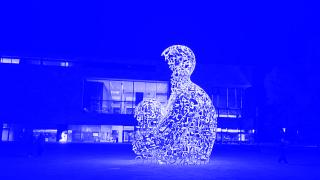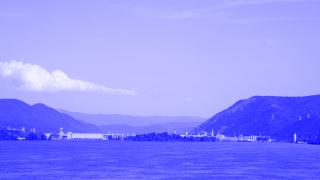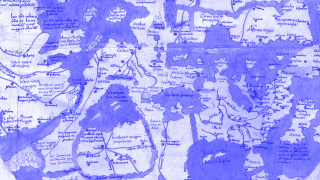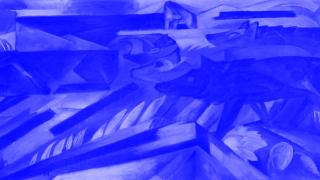Cross-departmental research
Working Groups
New, thematically organised working groups strengthen cross-departmental cooperation, particularly with regard to the Institute's five main research piorities, and contribute to the fulfillment of the medium-term research agenda. They also serve to generate new research impulses and create new synergies.
WG »Knowledge«
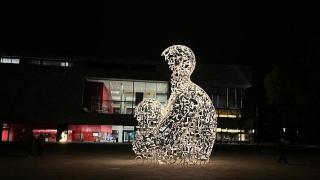
Starting from a broad conception of knowledge, our interdisciplinary working group discusses questions relating to the production, ordering, mediation and effects of epistemic elements. The focus of our consideration is on the politics, practices and economies of knowledge in Central and Eastern Europe and their transnational and global networks. To this end, we draw on approaches from the sociology of science and knowledge, network theory and technopolitics, as well as explicitly feminist and postcolonial perspectives. The aim is to integrate the GWZO's various research strands, which view knowledge as a relationship of power and performance. Expertise, gatekeeping, validity, alternative facts, lay knowledge, body knowledge, transfer, demarcation and spatial formation, governance, and the implications of accelerated digitization are just a few of the topics that we aim to understand as fluid processes from a decidedly praxeological perspective.
The working group aims to consolidate research on the history of knowledge at the GWZO across various departments. Particular attention is paid to understanding the different heuristic approaches of the humanities, natural sciences and social sciences, which are of fundamental importance for the GWZO's interdisciplinary research. The working group meetings serve to read texts and discuss ongoing research proposals, generate new research ideas, and organise relevant workshops and conferences.
Contact:
WG »Water«

The use of water and bodies of water in Central and Eastern Europe was not only a prerequisite for human, animal and plant growth but also for the increasing expansion of transport infrastructure. The cross-departmental, cross-disciplinary and cross-epochal working group therefore addresses not only the formation of the fluvial anthroposphere as a whole but also the use of seas, rivers and lakes, swamps, moors and drylands; their straightening and drainage: their use in land expansion, as transport routes; and their significance for industrialisation. The construction of mills, canals and dams for energy production and, significantly, of port facilities is just as much a focus as the use of (healing) springs, the construction of bathing facilities and the establishment of water protection areas in the context of nature and environmental protection. Other states of matter, such as ice and water vapor, should also be considered. The significance and consequences of ice and icing, as well as the generation and use of water vapor, should be examined in terms of their importance for the historical development of Central and Eastern Europe.
The working group aims to apply for third-party funding to conduct further research.
Contact:
WG »Global History«
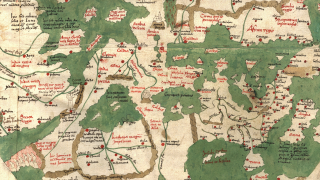
The history of Central and Eastern Europe embedded in global history is part of the GWZO's research agenda as a cross-epochal Institute. The »Global History« working group is working to expand these perspectives to include other world regions, thereby complementing the research that has so far focused on the 19th and 20th centuries. After all, global perspectives are also possible and fruitful in earlier periods and in interdisciplinary exchange (e.g. with art history or literary studies). In this context, »global« is no longer understood in the sense of an all-encompassing universal history nor as a spatial level above in a hierarchy including the local, regional, and national but rather as an additional level of observation that focuses on the interrelations between spaces, actors and processes and their historical significance. Our work is informed by a relational understanding of Central and Eastern Europe and a dissolution of rigid epochal boundaries in favour of a focus on the temporality of processes.
As a concrete output, the working group aims to establish a collaborative course for doctoral students within the next few years, which will address the global history(s) of Central and Eastern Europe from the pre-modern era to the present day on the basis of thematic priorities across disciplines and epochs and will be taught in teams by GWZO staff. In addition, we are planning a collective monograph on selected aspects of transepochal global history based on the experience of teaching the research seminar over the years and the new insights gained.
Contact:
WG »After Violence«
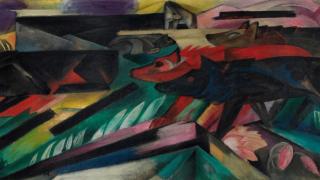
In the working group »After Violence«, scholars from various disciplines at the GWZO meet to discuss how mass political violence in the societies of Central and Eastern Europe has been pacified and transformed from premodern to present times. The title refers to the reckoning with violent events a posteriori, and also asks about coping strategies: the survival and continued existence of victims of violence; the abolition and persistence of violent relationships; the punishment of perpetrators; the perspective and role of bystanders; and the reevaluation of experiences of violence in art, architecture, literature and film.
How did those in positions of responsibility in politics and society react after the end of mass violence? What lessons did they learn? How did actors such as rulers, holders of social power or symbolic capital, victims who assumed the role of decision-makers, urban planners, artists and writers behave after the violence? How did resisters, city planners, artists and writers behave? What can we learn about the reactions of individuals and the transformation of their experience of violence in the domestic space, both in written narratives and in art?
The working group »After Violence« meets regularly to discuss basic texts from the fields of archaeology, art history, literary studies and history. In addition, case studies and draft proposals will be discussed on several occasions.
Contact:
